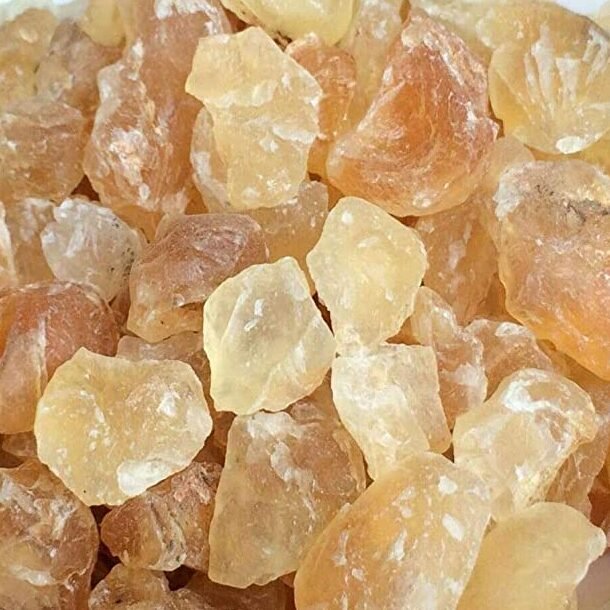Tragacanth Gum
Tragacanth gum is a natural gum obtained from the sap of the Astragalus species of plants. It has been used for centuries in traditional medicine and as a food additive. Tragacanth gum has a wide range of benefits and uses, making it a popular ingredient in various industries. In this article, we will discuss the benefits and uses of Tragacanth gum in detail.
What is Tragacanth Gum?
Tragacanth gum is a natural gum obtained from the sap of various species of the Astragalus plant. The gum is produced when the plant’s stem and branches are injured, causing the sap to ooze out and dry up. The gum has a translucent, odorless, and tasteless appearance, making it an ideal ingredient in various industries.
The History of Tragacanth Gum
Tragacanth gum has been used for centuries in traditional medicine as a remedy for various health issues, including diarrhea, inflammation, and sore throat. The gum has also been used as a food additive, thickener, and stabilizer in various cuisines worldwide. The earliest recorded use of Tragacanth gum dates back to the ancient Egyptians, who used it as an adhesive and binder for their papyrus scrolls.
How is Tragacanth Gum Produced?
Tragacanth gum is produced by making small incisions on the stem and branches of the Astragalus plant. The sap that oozes out is collected and dried to form gum flakes. The gum flakes are then milled into a fine powder, which is further processed to remove impurities and improve its quality.
Chemical Composition of Tragacanth Gum
Tragacanth gum is composed of a complex mixture of polysaccharides, including arabinose, xylose, galactose, rhamnose, and glucuronic acid. The gum also contains various proteins, lipids, and minerals. The unique chemical composition of Tragacanth gum is responsible for its numerous health benefits and industrial uses.
Health Benefits of Tragacanth Gum
Supports Digestive Health
Tragacanth gum has been traditionally used as a remedy for digestive issues such as diarrhea and constipation. The gum is rich in soluble fiber, which absorbs water and adds bulk to the stool, promoting regular bowel movements. The gum also has prebiotic properties, promoting the growth of beneficial gut bacteria, which helps maintain a healthy digestive system.
Regulates Blood Sugar Levels
Tragacanth gum has been shown to regulate blood sugar levels in people with diabetes. The gum contains compounds that slow down the absorption of carbohydrates in the digestive system, reducing the spike in blood sugar levels after a meal. The gum also improves insulin sensitivity, allowing the body to use insulin more efficiently.
Anti-Inflammatory Properties
Tragacanth gum has anti-inflammatory properties that help reduce inflammation and swelling
in the body. The gum contains compounds that inhibit the production of inflammatory enzymes, such as COX-2, and promote the production of anti-inflammatory cytokines. This makes it an effective remedy for conditions such as arthritis, asthma, and inflammatory bowel disease.
Boosts Immune System
Tragacanth gum has immune-boosting properties that help the body fight off infections and diseases. The gum contains compounds that stimulate the production of white blood cells, which are responsible for fighting off infections. The gum also enhances the activity of natural killer cells, which play a vital role in the body’s defense against cancer and viral infections.
Industrial Uses of Tragacanth Gum
Tragacanth gum has a wide range of industrial uses, making it a popular ingredient in various industries, including:
Food Industry
Tragacanth gum is used as a food additive, thickener, and stabilizer in various cuisines worldwide. The gum is commonly used in dairy products, desserts, and sauces, to improve their texture and mouthfeel. Tragacanth gum is also used in the production of confectionery products, such as gummies and marshmallows, to provide them with a chewy texture.
Cosmetics and Personal Care Industry
Tragacanth gum is used in the cosmetics and personal care industry as a thickener and stabilizer. The gum is commonly used in the production of creams, lotions, and gels, to improve their texture and viscosity. Tragacanth gum is also used in the production of hair products, such as shampoos and conditioners, to provide them with a smooth and creamy texture.
Pharmaceutical Industry
Tragacanth gum is used in the pharmaceutical industry as a binder, thickener, and emulsifier. The gum is commonly used in the production of tablets and capsules, to provide them with a consistent texture and improve their shelf life. Tragacanth gum is also used in the production of ointments and creams, to improve their texture and enhance their absorption.
Textile Industry
Tragacanth gum is used in the textile industry as a sizing agent, to improve the strength and durability of fabrics. The gum is commonly used in the production of silk and cotton fabrics, to provide them with a smooth and glossy finish.
Paper Industry
Tragacanth gum is used in the paper industry as a binder and coating agent. The gum is commonly used in the production of high-quality papers, such as art papers and banknotes, to improve their texture and prevent ink bleeding.
Safety and Precautions
Tragacanth gum is generally safe for consumption and use in various industries. However, some people may experience allergic reactions to the gum, especially those with a history of allergies to other plant-based gums, such as gum arabic. It is advisable to seek medical advice before consuming or using Tragacanth gum, especially if you have a pre-existing medical condition or are taking medication.
Conclusion
Tragacanth gum is a versatile natural gum with numerous health benefits and industrial uses. The gum has been used for centuries in traditional medicine and as a food additive, thickener, and stabilizer in various cuisines worldwide. Tragacanth gum has also found applications in the cosmetics and personal care, pharmaceutical, textile, and paper industries. Its unique chemical composition, including polysaccharides, proteins, lipids, and minerals, makes it an effective remedy for digestive issues, inflammation, diabetes, and immune system disorders.
- Is Tragacanth gum safe for consumption?
- Yes, Tragacanth gum is generally recognized as safe for consumption by regulatory authorities. However, individuals with allergies to legumes should avoid consuming it.
- How is Tragacanth gum used in traditional medicine?
- Tragacanth gum has been used in traditional medicine for its anti-inflammatory and immune-boosting properties. It has been used to treat respiratory and gastrointestinal problems, as well as skin disorders.
- Is Tragacanth gum sustainable?
- Yes, Tragacanth gum is a sustainable and renewable resource as it is obtained from the sap of the Astragalus plant, which is native to Iran and other countries in the Middle East.
- Can Tragacanth gum be used as a vegan alternative to gelatin?
- Yes, Tragacanth gum can be used as a vegan alternative to gelatin in food products as it has similar properties in terms of thickening and gelling.
- Is Tragacanth gum used in other industries apart from food and cosmetics?
- Yes, Tragacanth gum is also used in the pharmaceutical, textile, and paper industries for various purposes such as thickening, stabilizing, and sizing.
Lorem ipsum dolor sit amet, consectetur adipiscing elit. Ut elit tellus, luctus nec ullamcorper mattis, pulvinar dapibus leo.





